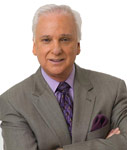
What should we make of those students, many enrolled at elite universities, who resemble delicate snowflakes on the verge of melting when confronted by an idea they don't like?
My first reaction is to laugh at them - and then remind them that they're in college not in kindergarten.
Sometimes the snowflakes are students who say they don't feel safe because someone wrote the name Trump on the sidewalk in chalk. Sometimes it's Halloween costumes that offend their sensibilities. And sometimes mascots must be banned and statues must be taken down because they represent something or someone of the past the snowflakes hate in the present.
At Yale, it's John C. Calhoun who is the crosshairs of these liberal authoritarians. There's a residence hall named after him at Yale and that simply won't do. Calhoun was a vice president of the United States, a U.S. senator, a congressman, a secretary of state, and a secretary of war, but as Wikipedia puts it, he "is best remembered for his strong defense of slavery."
So, the name of the dorm must be changed, they say. And a Yale committee has been established to consider the snowflakes' demand.
Since these are college kids, after all, they might want to confront some thorny issues. Is it fair, for example, to judge people who lived 200 years ago by 2016 standards? Should we take the customs - and even the morals - of another time and impose them on our time?
For those who think we should, here's another question: Where does the slippery slope lead? Should students of the future protest a Barack Obama library because he opposed same-sex marriage until he "evolved" - which came, not coincidentally, after he won his second run for the White House and no longer had to face the voters? Should Bill Clinton be forced to change the name of his family's foundation because of his unwanted advances on far less powerful women?
Where does it end?
But then I wondered how I would feel if I were a German Jewish student at some college in Germany and had to walk by the Adolf Hitler College of the Humanities every day. How would I feel if the school I attended honored Adolf Eichmann by naming the law school after him, or the medical school after Josef Mengele?
Actually, I know how I'd feel. I not only wouldn't like it, I wouldn't accept it. I'd lead the protestors until they changed the names. In other words, I'd feel a lot like the kids at Yale feel about John C. Calhoun and slavery.
But slavery was the custom hundreds of years ago, not in the 1940s. Doesn't that make a difference? I don't think so. Even if Hitler and Eichmann and Mengele killed six million of my people 200 (or 500) years ago, I'd feel the same way.
So maybe my kneejerk reaction, my willingness to laugh off the kids at Yale, is just that, a thoughtless kneejerk reaction. Maybe they have a point.
And if it's unfair to judge people by the standards and morals of another era - as I pretty much believe — why is it okay for me to judge the Nazis by what they did a long time ago? I'll give that question my best shot, which you may or may not find good enough: While slavery not only was morally reprehensible, and while everyone should have seen it that way, somehow, not everyone did. Even otherwise good people had slaves. And slavery - again, as evil as it was — wasn't a systematic plan to murder an entire class of people.
And whatever John C. Calhoun was, he wasn't Adolf Hitler. Not to me, anyway.
Comment by clicking here.

JWR contributor Bernard Goldberg, the television news reporter and author of several bestselling books, among them, Bias, a New York Times number one bestseller about how the media distort the news. He is widely seen as one of the most original writers and thinkers in broadcast journalism. Mr. Goldberg covered stories all over the world for CBS News and has won 10 Emmy awards for excellence in journalism. He now reports for the widely acclaimed HBO broadcast Real Sports.
He is a graduate of Rutgers University, New Brunswick, New Jersey and a member of the school's Hall of Distinguished Alumni and proprietor of BernardGoldberg.com.


 Contact The Editor
Contact The Editor
 Articles By This Author
Articles By This Author